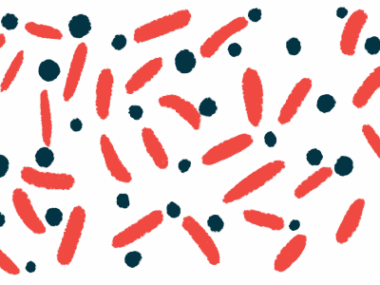My garden gave me fresh hope — and a freezer full of pesto
Amid worsening Parkinson's symptoms, a whiff of basil boosted my spirits
Written by |

Note: This column describes the author’s own experiences with probiotics. Not everyone will have the same response to treatment. Consult your doctor before starting or stopping a therapy or supplement.
What I’m about to share with you is not an endorsement of any product; it’s simply my own story.
Last winter, I felt that my Parkinson’s disease symptoms were progressing at breakneck speed. After 10 years of trying to do everything in my power to slow the progression, including deep brain stimulation, I felt cheated.
In a fit of frustration, I dropped two things from my life that I felt were not doing their “promised” job of slowing disease progression: probiotics and boxing. Both the probiotics that were explicitly recommended for people with Parkinson’s disease and the boxing program that I had been attending since it started were victims of my lifestyle purge. Don’t let the door hit you on the way out, my former friends! I was feeling angry about wasted time and money.
Undeterred, I decided to take matters into my own hands. I started running four days a week, joined exercise classes for seniors, and attended a stretch session at a physiotherapy clinic every two weeks. I still had my weekly walking group, so I was able to discuss Parkinson’s-related topics without the commitment or expense of boxing three days a week.
Despite my efforts, my symptoms didn’t show any signs of improvement; in fact, they seemed to be worsening. This was a source of great confusion and frustration for me. Why wasn’t anything working?
I had every single motor symptom of Parkinson’s disease — dyskinesia, bradykinesia, tremors, slow and soft speech, freezing, terrible balance — and then I started feeling a bit depressed. Why was this happening? Why? (Picture me shaking my fist at the sky.)
Oops, perhaps it was because I had decided to drop not just one, but two habits that have shown promise in slowing symptom progression. I needed to figure this out before it was too late. I decided to resume taking probiotics to see what would happen.
A whiff of fresh basil sparks hope
After about six weeks, I had an unexpected experience when I was out picking basil in my garden. As I’ve mentioned before, my sense of smell has been AWOL for a long time. No scents were getting through.
I was picking enough basil to make a large batch of pesto, so I had armloads of it. Then, suddenly, what was that? I realized I could smell the basil — and not just a slight whiff in the air. I breathed in deeply. Yes. Yes! The big, beautiful breath of freshly picked basil filled not just my lungs, but also my heart.
At that moment, I was filled with hope. Are my sense of smell and mood somehow linked? Perhaps. As Rachel Herz, a neuroscientist at Brown University, told Harvard Medicine magazine, “Smell can instantly trigger an emotional response … and our emotional states have a very strong effect on our physical well-being.” The article goes on to explain that “these beneficial effects may explain why the loss of olfaction — a condition called anosmia — can be damaging to mental health.”
A Harvard Health Publishing article also notes that you can retrain your olfactory nerves by actively smelling different things each day, such as peppermint, cinnamon, cloves, lemons, and peanut butter. The chances of recovering your sense of smell aren’t great if you lost it due to Parkinson’s disease, but I’m going to give it a try anyway.
Yes, of course, Parkinson’s still haunts me, but that gorgeous scent of basil made me turn a corner and not give up all hope. Yes, all my symptoms are still driving me mad, but now I have a glimmer of hope, and a freezer full of fragrant and delicious pesto.
Note: Parkinson’s News Today is strictly a news and information website about the disease. It does not provide medical advice, diagnosis, or treatment. This content is not intended to be a substitute for professional medical advice, diagnosis, or treatment. Always seek the advice of your physician or another qualified health provider with any questions you may have regarding a medical condition. Never disregard professional medical advice or delay in seeking it because of something you have read on this website. The opinions expressed in this column are not those of Parkinson’s News Today or its parent company, Bionews, and are intended to spark discussion about issues pertaining to Parkinson’s disease.




Carole Livelli
The time I walked into a flower store that had a huge supple of freshly arrived flowers and the smell just hit me so unexpectedly made me smile because I didn’t realize how much I missed the smell over the years. It only lasted for a short time but was enough to make me feel good that day.